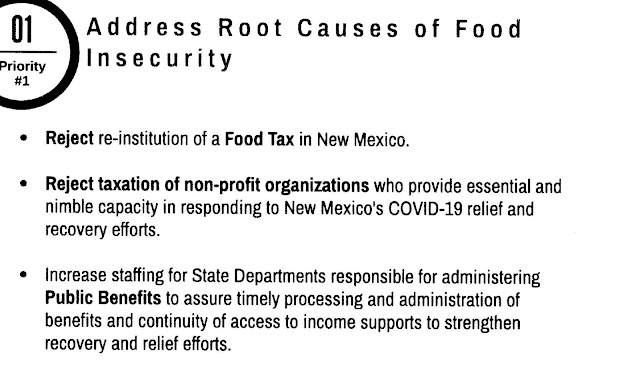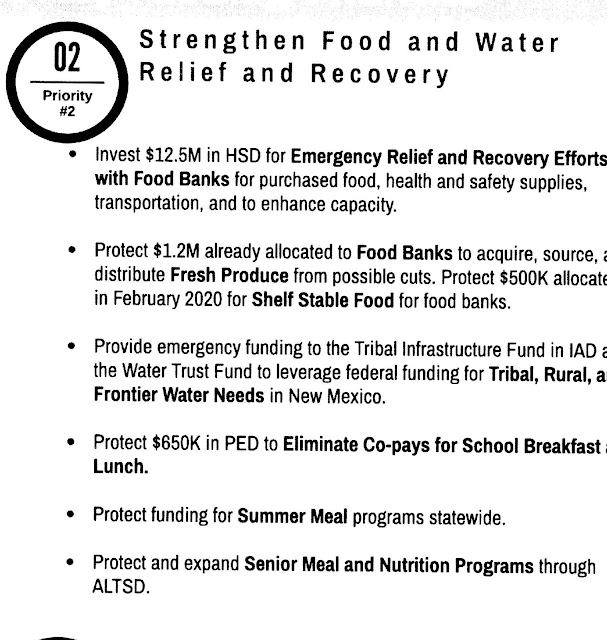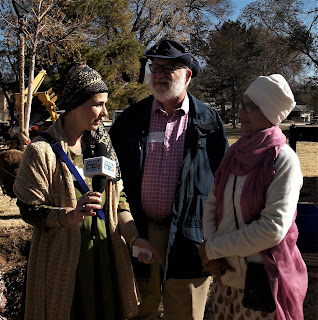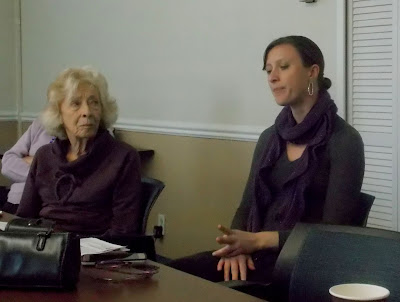"In our aquagarden, our fish produce the fertilizer for the plants and the plants clean the water for the fish...We have donated over 30 bags of lettuce, basil, and arugula to St. Martin's Hospitality Center... excerpts from The Messenger newsletter (July 2017), First Presbyterian Church, Albuquerque
In our four-part series on aquaponics in 2014, we learned how communities in our country and in Haiti built aquaponics operations to grow vegetables and produce fish for local feeding operations.
The concept is simple. Combine aquaculture (raising fish) and hydroponics (growing plants in water) to create an aquaponics garden. The nutrient-rich water from raising fish
provides a natural fertilizer for the plants and the plants help to
purify the water for the fish "Aquaponics can be used to sustainably
raise fresh fish and vegetables for a family, to feed a village or to
generate profit in a commercial farming venture," said
Nelson and Pade, manufacturer of aquponics kits.
Our series featured aquaponics operations in
Milwaukee,
St. Paul (Minnesota), and
northwest Haiti. Part 2 examined an aquaponics operation closer to home in the
Mesilla Valley in southern New Mexico. In 2016, we also published a separate piece on a creative effort to grow food,including aquaponics, in post-Katrina
New Orleans. We now feature the efforts of a local faith community--First
Presbyterian Church in Albuquerque--to develop its own aquaponics operation.
___________________________________________________________________________
Learn About the Aquagarden at First Presbyterian Church
At our next bimonthly meeting of the Interfaith Hunger Coalition.
Tuesday, November 14
First Presbyterian Church
(I-25 and Martin Luther King Blvd).
12:00 Noon
The public is cordially invited
Brenda Sinfield, a member of the church's Mission Committee and Treasurer of the IHC, will lead a tour of the aquagarden.
__________________________________________________________________________
The History of the Project
It all started with an article that Pastor
Matthew Miller found in
The New York Times, entitled “The Spotless Garden” in the New
York Times about how aquaponics could change gardening
and food production. This led to extensive discussions in the Mission Committee about creating an aquagarden at First Presbyterian Church.
The project fit with two of the church's missions: to provide another alternative to address hunger in our city and to promote initiatives that address environmental protection and sustainability. One important consideration was that aquaponics uses 10 percent of the water
needed to grow the same crop in soil; there are no fertilizers,
pesticides; and there is year-round production
The discussions eventually led to the Mission Committee to propose the purchase of an F5 aquaponics kit (Fantastically Fun Fresh
Food Factory) from Nelson and Pade. The kit has the capacity to110 pounds
of fish and over 1,000 heads of lettuce or other vegetables such as
tomatoes, beans, cucumbers, spices, peppers, and more.
The project was finally launched in the summer 2016. "In our aquagarden, our fish produce the fertilizer for the plants and the plants clean the water for the fish," said an article in the July 2017 issue of the church's monthly newsletter
The Messenger.
Managing the Aquagarden
The Garden Task Force (which included members of the Mission Committee and Rev. Miller) was given the task to set up the aquagarden. The operation was set up in a room in the ground floor of the church.
Volunteers were recruited to monitor water
quality, check
lights, harvest crops, and most importantly feed the fish.
According to Brenda Sinfield, a member of the task force, different groups at the church take turns with the various tasks needed to maintain the operation, especially the daily feedings of the first. The,Library Committee feeds on Mondays, Sunbonnet on Tuesdays, Archives on Wednesdays, and Child's Garden on Thursdays and Fridays.
Other important tasks related to the fish are required. "We need to drain some
from the clarifier at least every other day and from the mineralization
tank weekly., said Sinfield. "Water needs to be added at least weekly. Chemicals need
to be tested weekly."
Five people are part of a task force to ensure that the operation runs smoothly. They include Joe Katzenberger, Bill Cobbs, Brenda Sinfield, Rev. Matthew Miller and Carolyn
Rhodes.
In its first year, the aquagarden produced lettuce, arugula, basil, cilantro, cherry
tomatoes, peas, sunflowers and, of course, tilapia.
The next step was to determine where to distribute the produce grown in the aquagarden. "We donated over 30 bags of lettuce, basil, and arugula to St. Martin's Hospitality Center,' said the July issue of
The Messenger.
The aquaponics operation also provides food for church activities.
"For the Third-Week All-Church Fellowship Luncheon, which was also
Father's Day, the tilapia were harvested and served as fish tacos," said the church newsletter.
 What Comes Next?
What Comes Next?
The church plans to continue to provide greens for St. Martin's Hospitality Center and perhaps other operations around the city that need fresh produce to create healthy meals.
And now that First Presbyterian Church has succeeded in creating its own aquaponics project, the church is willing to serve as a resource for other faith communities and groups that want to set up similar facilities on the grounds of their church or temple.
There is also an ambitious plan for the facilities at First Presbyterian Church. "In the future, we hope to build greenhouses across the street and add fruit trees around," said The Messenger. "We hope to work with other educational groups to educate our friends and neighbors about aquaponics and how to grow their own healthy food."

















































